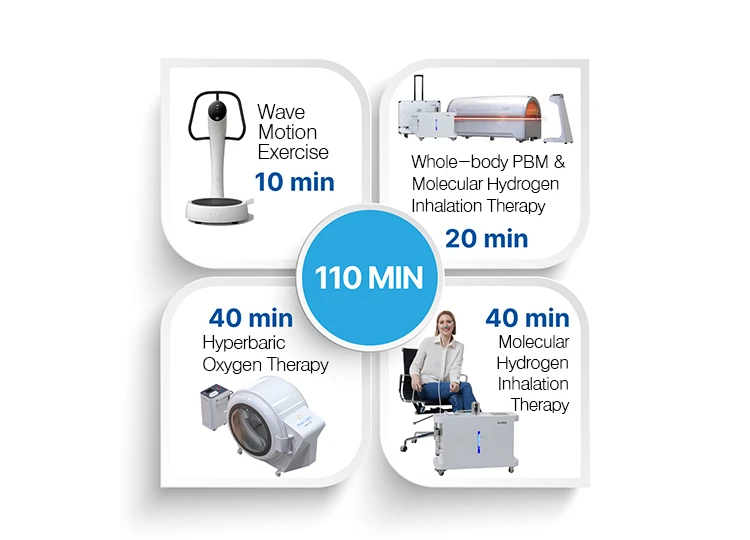Chronic Fatigue Syndrome (CFS), also known as Myalgic Encephalomyelitis (ME/CFS), is a complex, debilitating disorder characterized by profound fatigue that lasts for more than six months and is not alleviated by rest. This fatigue severely impairs daily functioning and is often accompanied by other symptoms such as cognitive difficulties (commonly called “brain fog”), sleep disturbances, and post-exertional malaise (worsening symptoms after physical or mental exertion).
According to the CDC, up to 2.5 million Americans may suffer from ME/CFS, but many remain undiagnosed or misdiagnosed due to its complexity and symptom overlap with other conditions.
Living with CFS can feel like running a marathon with no finish line. Conventional treatments often fall short, leaving patients searching for alternative solutions. This article provides a professional, evidence-informed overview of promising alternative therapies that can be considered as part of a holistic management plan for CFS.
Understanding Chronic Fatigue Syndrome
Possible Root Causes
The exact cause of CFS remains elusive, but research points to several contributing factors:
- Mitochondrial Dysfunction: Impaired energy production at the cellular level may contribute to fatigue.
- Immune Dysregulation: Abnormal immune responses, including chronic inflammation, are common in CFS patients.
- Chronic Infections: Viral infections (e.g., Epstein-Barr virus) or bacterial triggers may play a role.
- Nervous System Abnormalities: Dysregulation in the autonomic nervous system can lead to symptoms like orthostatic intolerance.
- Gut dysbiosis: Alterations in gut microbiota have been linked to systemic inflammation and immune disruption.
Diagnostic Challenges
CFS is diagnosed based on criteria like the Fukuda definition or the more recent Institute of Medicine criteria, which require at least six months of unexplained fatigue plus additional symptoms like sore throat, swollen lymph nodes, or cognitive issues. The variability in presentation and overlap with conditions like fibromyalgia complicates diagnosis.
Limitations of Conventional Treatments
Mainstream medicine often focuses on symptom management rather than addressing root causes. Conventional treatments for CFS, such as cognitive behavioral therapy (CBT) and graded exercise therapy (GET), aim to manage symptoms but often yield mixed results.
A 2019 study in The Lancet found that while CBT helps some patients cope, it doesn’t address underlying biological issues. GET, once widely recommended, has faced criticism for potentially worsening symptoms in up to 50% of patients due to post-exertional malaise (Journal of Health Psychology, 2020). Medications like antidepressants or pain relievers may provide partial relief but often come with side effects and limited efficacy.
Why Alternative Approaches?
The lack of effective pharmaceutical options and the highly individualized nature of CFS drive interest in alternative treatments. Patients often turn to these therapies to complement standard care, seeking holistic approaches that address physical, mental, and emotional well-being. These approaches empower patients to take an active role in their health, offering options that are often less invasive and more adaptable to individual needs.
Caution and Considerations
Before trying alternative treatments, consult a healthcare professional to ensure safety and compatibility with existing conditions or medications. Be wary of unproven “cures” or expensive therapies lacking scientific support. Always prioritize evidence-based or well-documented approaches, and monitor your body’s response to any new treatment.
Alternative Treatments for Chronic Fatigue Syndrome
1. Nutritional and Dietary Approaches
Nutrition plays a critical role in managing CFS symptoms by reducing inflammation, supporting energy production, and optimizing gut health.
- Anti-inflammatory Diets: Diets like the Mediterranean or plant-based, rich in fruits, vegetables, lean proteins, and healthy fats, may reduce inflammation. A 2020 study found that anti-inflammatory diets improved fatigue and quality of life in autoimmune conditions, potentially applicable to CFS.
- Supplements: Common supplements include:
- CoQ10: Supports mitochondrial function; A 2016 study showed reduced fatigue in CFS patients.
- Magnesium: May improve energy and muscle function.
- B Vitamins: Essential for energy metabolism, though evidence is mixed.
Risks: Over-supplementation can cause adverse effects; consult a practitioner for personalized dosing.
- Hydration and Gut Health: Dehydration exacerbates fatigue, so adequate water intake is vital. Probiotics and addressing food sensitivities (e.g., gluten or dairy) may improve gut health, as gut dysbiosis is common in CFS patients.
- Actionable Insight: Work with a dietitian to create a personalized nutrition plan, starting with small changes like incorporating anti-inflammatory foods or testing for food sensitivities.
2. Mind-Body Practices
Mind-body therapies address the emotional and psychological aspects of CFS, helping manage stress and improve mental clarity.
- Cognitive Behavioral Therapy (CBT): CBT helps reframe negative thought patterns and manage stress, which can exacerbate symptoms. A 2017 meta-analysis found CBT moderately effective for reducing fatigue severity.
- Mindfulness and Meditation: Techniques like mindfulness-based stress reduction (MBSR) improve sleep and reduce stress. Studies show mindfulness improves the quality of life in CFS patients.
- Yoga and Tai Chi: Gentle practices enhance flexibility, energy, and emotional well-being.
- Actionable Insight: Start with short, guided mindfulness sessions (e.g., 10 minutes daily) or gentle yoga classes designed for low energy levels, ensuring modifications for physical limitations.
3. Physical and Energy-Based Therapies
These therapies focus on physical symptom relief and energy balance, though their application must be cautious.
- Acupuncture: By stimulating specific points, acupuncture may improve energy flow and reduce pain. A 2017 review found modest benefits for fatigue and pain in CFS.
- Massage Therapy: Massage reduces muscle tension and promotes relaxation. Anecdotal reports suggest benefits, though large-scale studies are lacking.
- Graded Exercise Therapy (GET): GET involves gradually increasing physical activity, but it’s controversial due to reports of symptom worsening. A tailored, cautious approach under supervision is critical.
- Actionable Insight: Try acupuncture with a licensed practitioner or gentle massage, starting with short sessions. Avoid GET unless guided by a specialist familiar with CFS.
4. Complementary and Herbal Medicine
Herbal and complementary therapies are popular but require careful consideration due to limited evidence.
- Herbal Remedies: Ginseng, ashwagandha, and licorice root are used for energy and immune support.
- Homeopathy: While used by some, homeopathy lacks robust evidence for CFS and should be approached cautiously.
- Essential Oils: Aromatherapy with lavender or peppermint may promote relaxation and symptom relief, though evidence is mostly anecdotal.
- Actionable Insight: Consult an herbalist or naturopath for safe herbal remedies, starting with low doses to monitor effects.
5. Lifestyle Changes
Lifestyle adjustments are foundational for managing CFS and preventing symptom flares.
- Pacing: Structuring activities to balance rest and activity prevents overexertion. The Pacing for ME/CFS approach emphasizes listening to your body’s limits.
- Sleep Hygiene: Tips include maintaining a consistent sleep schedule, avoiding screens before bed, and creating a restful environment. Poor sleep exacerbates CFS symptoms.
- Support Groups and Counseling: Connecting with others via support groups or counseling provides emotional relief. Online communities like ME/CFS Foundation offer resources.
- Actionable Insight: Create a daily schedule with planned rest breaks and prioritize sleep hygiene practices, such as limiting caffeine after noon.
6. BAHI Therapy: A Multi-Modal Approach to Energy and Recovery

An emerging alternative in the management of Chronic Fatigue Syndrome is BAHI Therapy, a multi-step protocol that targets some of the core dysfunctions associated with CFS—namely, impaired energy production, oxidative stress, immune dysregulation, and poor circulation.
BAHI stands for Blood circulation, Antioxidant support, Hormonal balance, and Immune system modulation. It combines several non-invasive modalities used in integrative health to promote cellular healing and systemic balance.
How It Works
BAHI Therapy integrates three key components:
- Whole-Body Vibration: A form of low-impact stimulation that helps enhance blood flow and lymphatic drainage. For individuals with fatigue who are unable to tolerate exercise, this method offers a way to gently activate circulation and metabolism.
- Photobiomodulation (PBM) with Molecular Hydrogen Inhalation: PBM uses specific wavelengths of light (red, green, and near-infrared) to stimulate mitochondrial function and ATP production. This is combined with inhalation of hydrogen gas, known for its selective antioxidant properties that may reduce oxidative stress, a major contributor to CFS symptoms.
- Mild Hyperbaric Oxygen Therapy (HBOT): By delivering oxygen under mild pressure, HBOT may support tissue repair, reduce inflammation, and enhance energy metabolism, particularly in individuals with low oxygen utilization or mitochondrial dysfunction.
Why It May Help with CFS
CFS is often associated with multiple system imbalances, including cellular energy deficits, inflammation, and autonomic nervous system dysfunction. The combination of modalities in BAHI Therapy aims to:
- Improve mitochondrial efficiency and energy availability
- Reduce oxidative and inflammatory load
- Support detoxification and microcirculatory flow
- Enhance the overall resilience of the nervous and immune systems
While formal clinical trials on BAHI Therapy in CFS populations are still limited, the components used have shown promise in studies on fatigue, neuroinflammation, and mitochondrial health. Early anecdotal reports also suggest improvements in symptoms such as brain fog, post-exertional malaise, and unrefreshing sleep.
Take the Next Step Toward Recovery
If you’re struggling with the unrelenting fatigue and complex symptoms of Chronic Fatigue Syndrome, it’s time to explore a holistic solution designed with your biology in mind. BAHI Therapy offers a science-backed, multi-modal approach that targets the root dysfunctions behind chronic fatigue—without relying solely on medications or high-risk interventions.
Discover how BAHI Therapy can support your energy, recovery, and long-term well-being.
Speak with a specialist today to learn if this innovative therapy is right for you.












